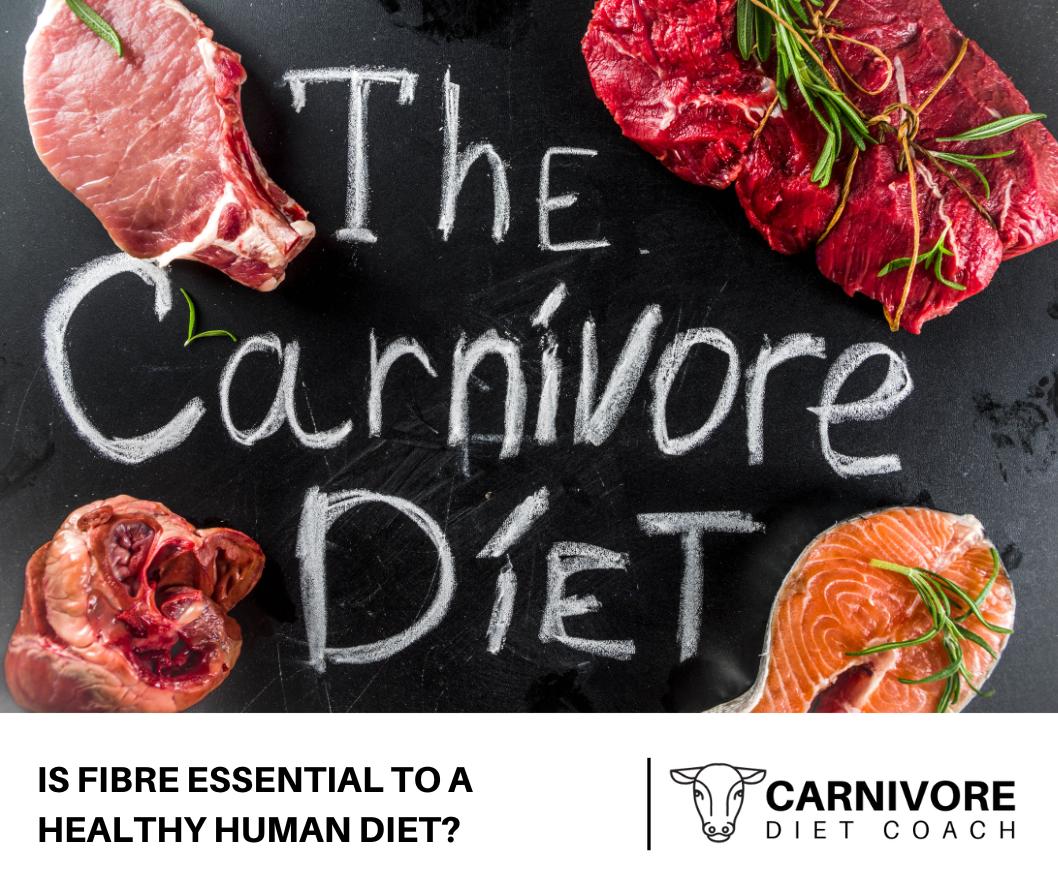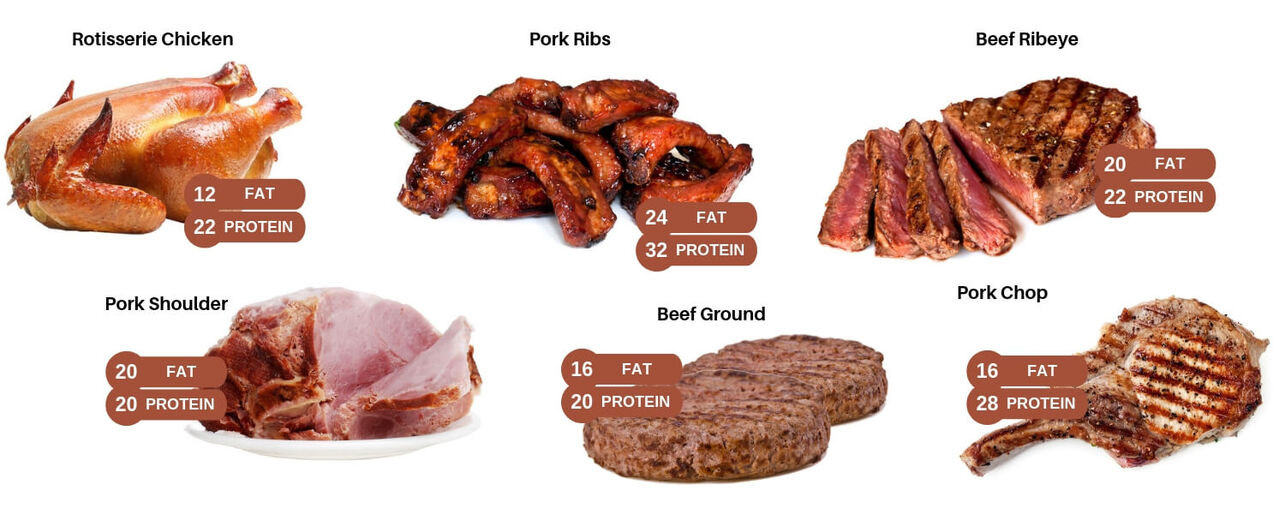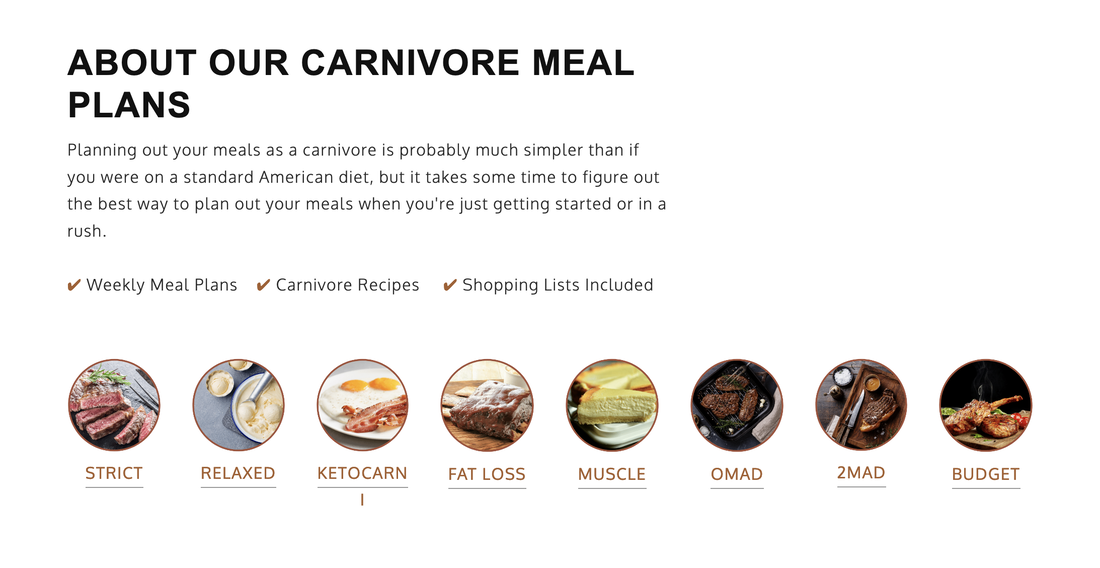|
THE COMPLETE
CARNIVORE DIET GUIDE
Learn how to lose weight, fix your gut and cure autoimmune symptoms with our free Carnivore Diet guide.
|
|
A carnivore diet challenge involves eating only animal products for a period of 30 days. Proponents of the carnivore diet claim that it can provide a range of health benefits, including:
Here are some steps you can follow to complete a 30-day carnivore diet challenge: 1. Educate yourself about the carnivore diet The carnivore diet consists of animal products only, including meat, fish, eggs, and some dairy products. Plant-based foods, including fruits, vegetables, grains, and legumes, are not allowed. The carnivore diet is based on the idea that animal products are more nutrient-dense and easier for the body to digest than plant-based foods. Proponents of the diet claim that it can help improve energy levels, mental clarity, and physical performance. However, the carnivore diet is not without risks. It may also be low in certain nutrients that are found in plant-based foods, such as antioxidants, vitamins, and minerals, although some would argue this a good thing. It's important to carefully consider whether the carnivore diet is right for you. If you decide to try the carnivore diet, it's a good idea to work with a healthcare professional, such as a doctor or registered dietitian, to ensure that you are getting all the nutrients you need. If you have certain health conditions, such as kidney disease or a history of disordered eating, the carnivore diet may not be suitable for you. It's important to consult a healthcare professional before starting the carnivore diet to ensure it's safe for you. GET FREE CARNIVORE DIET GUIDES HERE 2. consult a healthcare professional The carnivore diet may not be suitable for everyone. It's important to consult a healthcare professional, such as a doctor or registered dietitian, to ensure that the diet is safe for you. A healthcare professional can help you assess your current health status and determine whether the carnivore diet is a safe and appropriate choice for you. They can also help you understand the potential risks and benefits of the diet and provide guidance on how to properly follow it. If you have any pre-existing health conditions, such as kidney disease, heart disease, or diabetes, it's especially important to consult a healthcare professional before starting the carnivore diet. These conditions may be affected by the carnivore diet and may require special considerations. If you have a history of disordered eating or struggle with eating disorders, the carnivore diet may not be suitable for you. A healthcare professional can help you understand the potential risks and provide guidance on how to address any concerns you may have. It's important to remember that the carnivore diet is a very restrictive way of eating and may not provide all the nutrients your body needs. Consulting a healthcare professional can help you ensure that you are getting all the nutrients you need to stay healthy and maintain good overall health. 3. Plan your Meals The carnivore diet consists of meat, fish, eggs, and some dairy products. It's a good idea to include a variety of these foods in your meals to ensure you're getting a range of nutrients and flavors. Consider incorporating different types of meat, such as beef, pork, chicken, and lamb, as well as different types of fish, such as salmon, tuna, and cod. Eggs can be a great source of protein, vitamins, and minerals on the carnivore diet. You can include them in meals or use them as a snack. Some dairy products, such as cheese, butter, and heavy cream, are allowed on the carnivore diet. However, it's important to be mindful of your intake of these foods, as they are high in saturated fat and can contribute to an unhealthy diet if consumed in excess. It's a good idea to plan your meals and snacks ahead of time to ensure you have a variety of options and don't get bored with your food choices. This can help you stick to the diet and avoid feeling deprived. Consider using The Carnivore Diet Coach meal plans to make life a little easier. Don't forget to include a variety of cooking methods, such as grilling, roasting, and pan-frying, to add flavor and variety to your meals. It may be helpful to meal prep or cook in bulk to make it easier to stick to the carnivore diet. This can save time and help you stay on track with your meals. GET ACCESS TO CARNIVORE DIET MEAL PLANS HERE 4. Stay Hydrated Water is essential for many bodily functions, including digestion, metabolism, and the removal of toxins from the body. Dehydration can cause a range of symptoms, such as fatigue, headache, and dry mouth. Staying hydrated can help prevent these symptoms and ensure that you have enough energy to complete your daily activities. It's important to drink plenty of water throughout the day to stay hydrated. The general recommendation is to drink at least 8 cups (64 ounces) of water per day, but your individual needs may vary based on factors such as your age, sex, weight, and activity level. In addition to water, you can also include other hydrating beverages in your diet, such as broth and coconut water. However, it's important to be mindful of your intake of these beverages, as they may contain added sugars or other additives that could impact your health. If you're having trouble getting enough water, consider carrying a water bottle with you and sipping on it throughout the day. You can also add flavor to your water by adding slices of fruit, such as lemon or cucumber. 5. Track Progress Keeping track of your progress on the carnivore diet can be a helpful way to stay motivated and see how the diet is affecting your body. Here are some ways you can track your progress:
6. Get Support Doing a carnivore diet challenge can be challenging, both physically and mentally. Here are some ways you can seek support to help you through the process:
1 Comment
Shannon Pierce
1/13/2023 09:27:50 am
Severe fatigue and depression for last 2 years - since Covid & menopause
Reply
Leave a Reply. |
Carnivore Diet Recipes & Meal PlansOur Trusted Partners
Popular Guides
|











